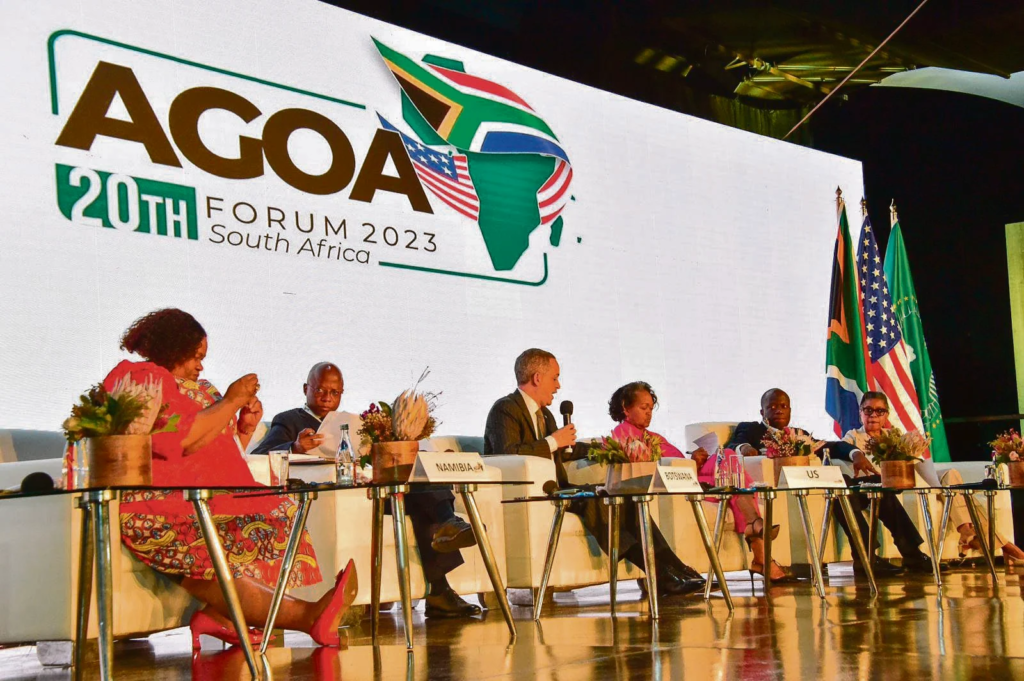Ugandan President Yoweri Museveni has made a bold assertion that Africa has the capacity to thrive independently of Western aid, following Uganda’s removal from the African Growth and Opportunity Act (AGOA) by the United States. This move by President Joe Biden was prompted by Uganda’s breach of AGOA eligibility requirements and gross violations of human rights, specifically in relation to its controversial Anti-Homosexuality Act of 2023.
The AGOA, initiated in 2000, is a significant trade agreement that grants eligible sub-Saharan African countries duty-free access to the US market for over 1,800 products, promoting exports, economic growth, and job creation. However, Uganda, along with the Central African Republic, Gabon, and Niger, is set to be excluded from AGOA beneficiaries starting in January 2024.
President Museveni’s response to this expulsion from AGOA has been resolute. He downplayed the impact of Uganda’s removal, emphasizing that his nation has the capacity to achieve its growth and transformation goals without external support. In a statement, he expressed that some Western actors “overestimate themselves” and “erroneously think that African countries cannot move forward without their support.” Museveni’s stance reflects a growing sentiment among African leaders who are increasingly seeking self-reliance and autonomy in their development strategies.
The decision to exclude Uganda from AGOA was prompted by the passing of the Anti-Homosexuality Act of 2023, which imposes severe penalties, including the death penalty, for certain same-sex acts. This law faced international criticism and led to concerns about Uganda’s human rights record.
While the expulsion from AGOA is likely to impact Uganda’s economy, particularly its exports, Museveni has remained steadfast in his commitment to self-sufficiency. In recent months, he has taken various measures aimed at reducing dependency on Western support, such as banning the importation of second-hand clothes, which is a significant trade item with the United States.
Museveni also criticized American companies for canceling textile orders from Uganda due to the Anti-Homosexuality Act, highlighting the complexities of economic interdependence in today’s globalized world.
The United States’ decision to exclude Uganda and other countries from AGOA has not been met with an immediate response from the affected nations. However, it is expected to have a tangible impact on their economies. For instance, in 2022, Uganda exported goods worth $174 million to the US under AGOA. Gabon and Niger recorded US exports of $220 million and $73 million, respectively, during the same period. The economic repercussions of this decision could be significant for these countries.
Uganda’s situation is further complicated by its trade deficit with the US. While it exported goods worth $174 million to the US, it imported goods worth $23 million in 2022, creating a substantial trade imbalance. This underscores the potential challenges Uganda may face as it seeks to navigate a post-AGOA economic landscape.

The US government’s decision to remove these countries from AGOA is also tied to concerns about political pluralism and the rule of law. In the case of Niger and Gabon, both countries have recently experienced military coups, leading to a suspension of foreign aid and, ultimately, their exclusion from AGOA. The United States has stated that aid will only be resumed once these nations establish democratic rule.
The removal of Uganda from AGOA highlights the complex relationship between trade, human rights, and international cooperation. It serves as a reminder that trade agreements come with certain expectations regarding political and human rights standards. When countries fail to meet these standards, it can lead to economic consequences.
The African Growth and Opportunity Act, scheduled to expire in September 2025, has been pivotal in fostering economic growth and development in participating nations. Discussions are already underway regarding whether the program should be extended and for how long, raising questions about the future of US-Africa trade relations.
In the case of Uganda, President Museveni’s strong stance on self-reliance is an indicator of the changing dynamics in international relations. African nations are increasingly seeking to chart their own paths to development and progress, reducing their reliance on Western aid and trade agreements.
The coming months will be crucial for Uganda, as it adapts to its new economic reality post-AGOA and grapples with the potential ramifications of its exclusion from this important trade program. The resilience and determination of its leadership and people will play a pivotal role in shaping the nation’s economic future, as it seeks to prove that self-reliance is a viable path to growth and development.